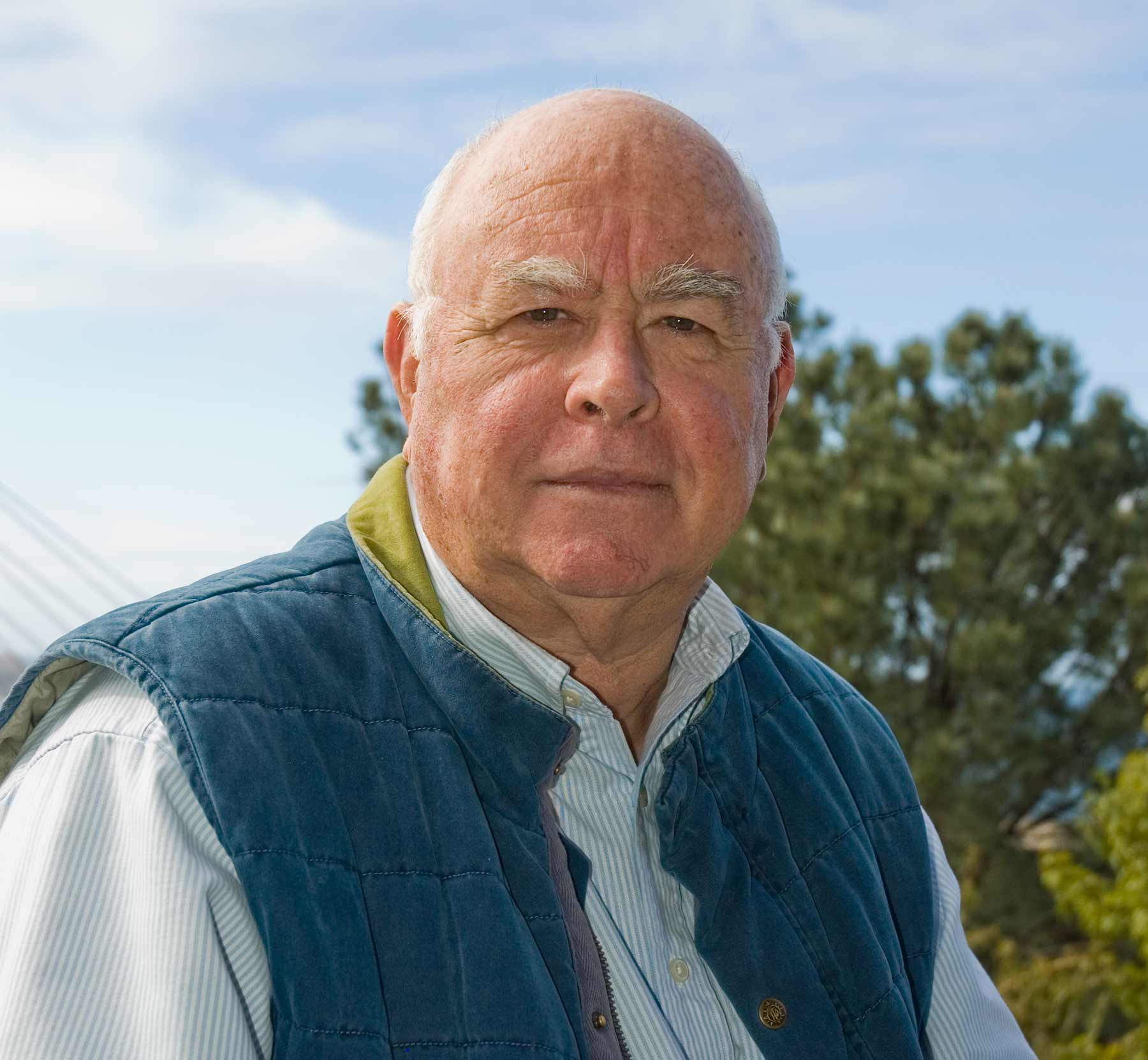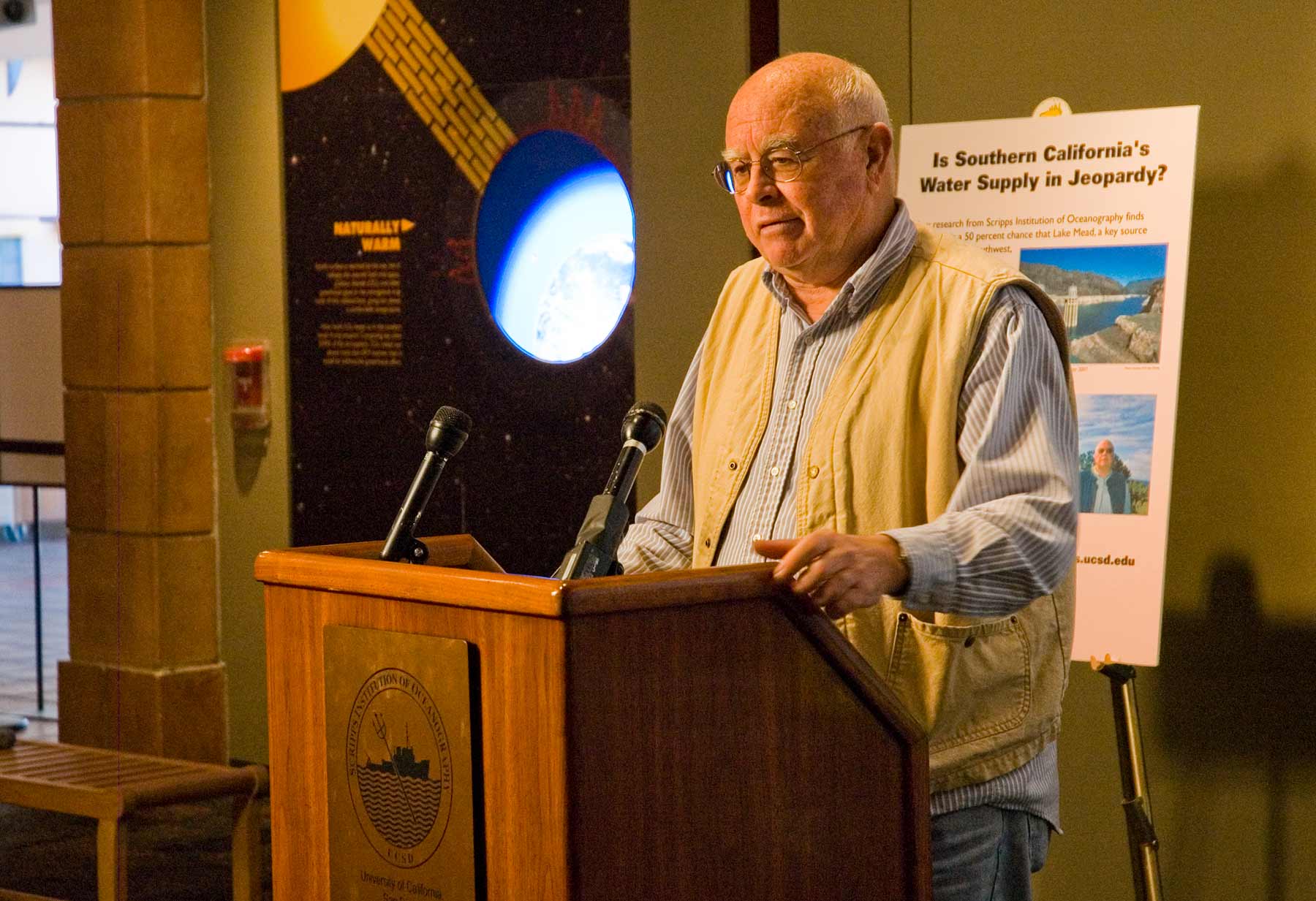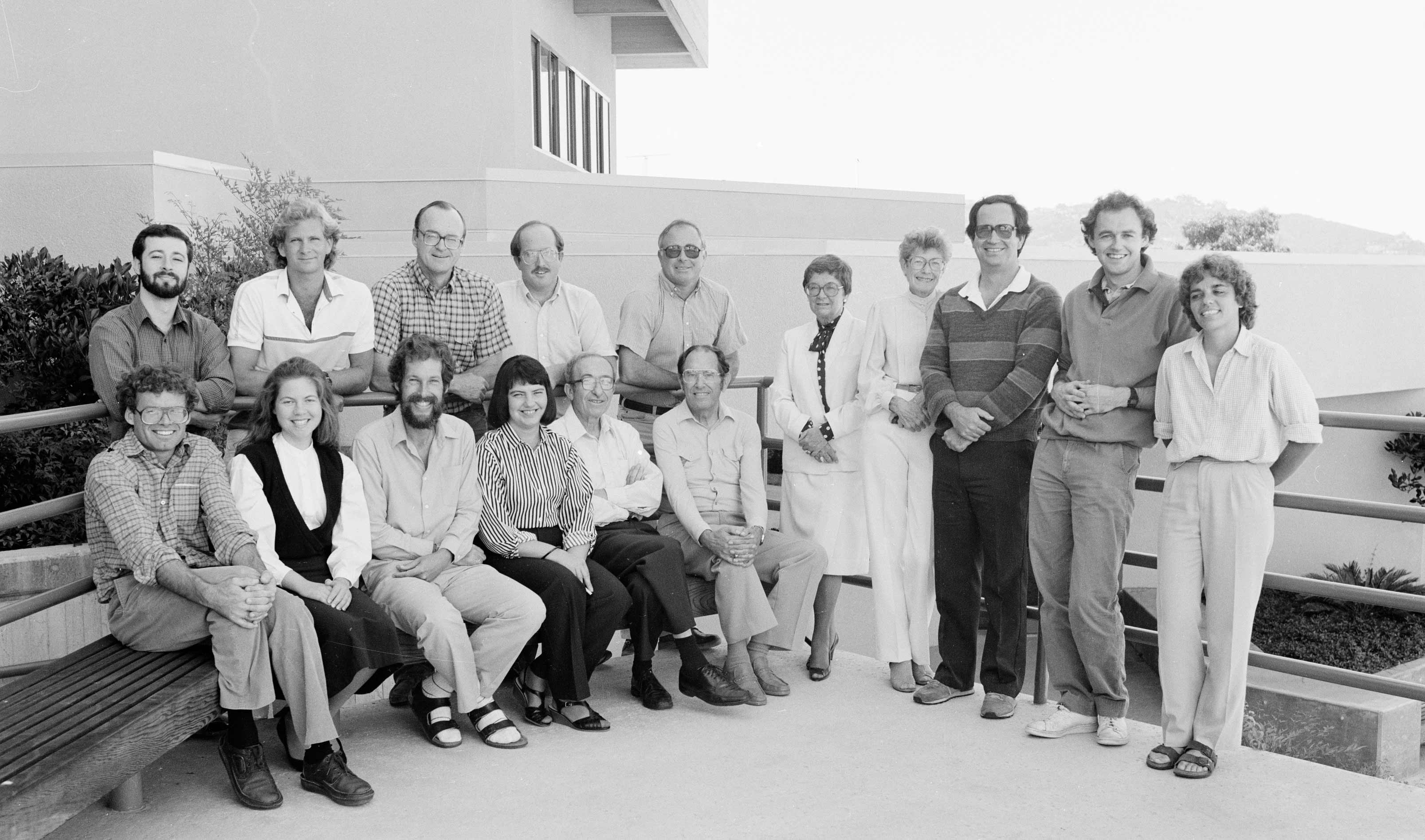By:
- Robert Monroe
Published Date
By:
- Robert Monroe
Share This:
Tim Barnett, Scripps Geophysicist Who Led First Wave of El Niño Forecasting and Foretold Demise of Western Reservoirs, Dies at 83

Tim Barnett, a research marine geophysicist at Scripps Institution of Oceanography at UC San Diego who made climate models become reliable as predictive tools, died Aug. 12 at his home in San Diego, Calif. He was 83.
Barnett was already established as a pioneer who incorporated mathematics and statistical methodology into seasonal forecasts when in 2008, a prophetic paper he co-authored garnered the attention of international media. The study, bluntly titled “When will Lake Mead go dry?,” predicted a 50 percent chance that Lake Mead, a key source of water for millions of people in the southwestern United States, would be dry by 2021 if the pace of climate change continued and future water usage were not curtailed. That study and a 2009 follow-up paper shocked the public and resource managers in the Southwest alike by providing specific dates when conditions would become dire and predicted specific water shortfall amounts under various scenarios.
Barnett’s death coincides with a summer that has seen that prediction largely borne out as Lake Mead and other Colorado River reservoirs face historic lows.

Tim Barnett addresses San Diego media after releasing a projection that Lake Mead could go dry by the mid 2020s, 2008.
“Tim was a pioneer in many important aspects of climate research revolving around seasonal forecasting and understanding how climate change is affecting our society,” said Scripps climate scientist David Pierce, who collaborated with Barnett on the Lake Mead projections and other papers documenting the human fingerprint on a changing climate. “Tim had a direct, down-to-Earth way of connecting with people, from his fellow hunters to members of congress to Nobel Prize winners, and was able to convey to a wide audience why climate wasimportant in shaping our economy and lives.”
Well before the Lake Mead paper, however, Barnett had already gained renown as a member of a then-small community of researchers who set about to improve predictions of El Niños, climate events characterized generally by the eastward shifting of a warm pool of equatorial Pacific Ocean water. The research community had been caught off guard when one of the largest El Niño winters in history developed in 1982 and scientists only realized what it was well into the event.
The unpredicted El Niño caused billions of dollars in damage to coastal communities along the eastern Pacific and the loss of as many as 2,000 lives. In response, government funding was provided to accelerate modeling at Scripps Oceanography’s Climate Research Division and other centers such as Lamont-Doherty Earth Observatory in New York. The effort led to Barnett’s successful prediction of a powerful El Niño in the winter of 1997, garnering widespread media coverage. Forecast abilities in the scientific community have advanced ever since.
“Tim was on the forefront in innovating techniques to consider global influences in seasonal climate forecasting,” said Scripps climate scientist and longtime colleague Dan Cayan. “He had a no-nonsense style in zeroing in on important climate puzzles and ways to solve them. And he was masterful in communicating results, including putting research findings and possible policy actions into the hands of key decision makers.”
Barnett played a key role in uncovering and documenting the effects of human-generated greenhouse gases on climate warming. In 2001, he led a team that showed the oceans were warming due to human-caused climate change, a key finding because oceans cover the majority of the earth’s surface and are not subject to urban heat island effects, a confounding influence that was widely debated at the time. In 2008, he zeroed in on the western United States, showing that climate change was already altering the snowpack, temperature, and river runoff in the region.
Barnett was born Sept. 23, 1938 in Huntington Beach, Calif. He attended Pomona College in Claremont, Calif. and received a bachelor’s degree in physics and mathematics. He received his Ph.D. in oceanography from Scripps Oceanography in 1966. Barnett completed his thesis on ocean surface wave dynamics working with physicist Klaus Hasselmann, a 2021 Nobel Prize recipient and emeritus professor at the Max-Planck-Institut für Meteorologie in Hamburg, Germany. He worked as manager of the Ocean Physics Department at Westinghouse Electric Corporation in San Diego until 1971, when he returned to Scripps Oceanography as the academic administrator for the North Pacific Experiment (NORPAX). NORPAX studied the interactions of the North Pacific Ocean and the overlying atmosphere on climatic time scales. In 1975, he joined the Scripps Oceanography Climate Research Division.
Barnett investigated myriad elements of climate including the effects of land processes on climate change, and the recognition of greenhouse gas signals (such as sea-level rise). He developed detection methods to identify anthropogenic signals associated with global warming.
“Ongoing changes continue to verify Tim's seminal work to detect and forecast anthropogenic influence as a driver of climate and water resources,” Cayan said.

Tim Barnett (standing, fifth from left) and members of the Climate Research Division, 1985.
Barnett testified before the U.S. Congress during his career and served as an advisor to governmental agencies on ocean and climate phenomena. He served on numerous National Academy of Sciences panels including the Climate Research Committee and the U.S. Advisory Panel for the Tropical Ocean/Global Atmosphere program. Barnett was a lead contributor to the first Intergovernmental Panel on Climate Change (IPCC) report issued in 1990 and participated in two subsequent IPCC reports. He was one of many scientists around the world who shared in receiving the Nobel Peace Prize in 2007 for the IPCC’s work in alerting society to the threat of climate change.
Barnett received the Sverdrup Gold Medal from the American Meteorological Society in 1993, the highest honor the society can bestow on an oceanographer. In 2013, Britain’s Royal Meteorological Society awarded him its Symons Gold Medal, the society’s premier award. It was the first time in the history of the award that a Scripps Oceanography scientist received the honor. Barnett was also a fellow of the American Geophysical Union and the American Meteorological Society and the author of more than 230 scientific papers.
An avid sport fisherman and hunter, Barnett was often an informal source for journalists seeking information about how El Niño and global warming affected migration patterns of game fish off California.
Barnett is survived by sons Blake Barnett of San Antonio, Texas; Steven Barnett and William Barnett of San Diego, Calif; and seven grandchildren. He is preceded in death by wife, Judie, who died in 2020.
Barnett's family plans a private memorial service.
Share This:
You May Also Like
Stay in the Know
Keep up with all the latest from UC San Diego. Subscribe to the newsletter today.



